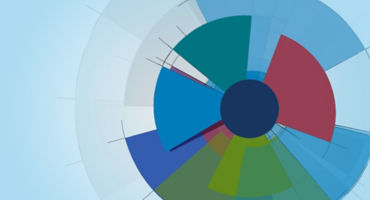What to watch for in the near term?
- The strength of the US economy – Assessing the true strength of the US economy remains key. Data suggesting a reacceleration in economic momentum or still sticky inflation is likely to push out rate cut expectations further. With the earnings season over, this could start to weigh on growth stocks’ performance. At the same time, US growth momentum shows signs of having peaked at the start of the year. And US Federal Reserve Chair Jerome Powell recently told Congress the Fed is “not far” from feeling confident enough to cut rates.
- The European recovery – We’ve started to see the pickup in leading economic indicators translating into an improvement in hard data such as industrial production. It will be important to see if this continues without the disinflationary trend slowing.
- Developments in China – The messaging from February’s National Congress was disappointing, but more details might emerge on how the Chinese government intends to reach 5% GDP growth, which would have important implications for both regional and global markets.
Macro environment
The gap opening up between US and European nominal growth expectations is striking. Nominal year-on-year growth expectations for the fourth quarter of 2024 are 4.7% for the US, up from 3.8% in December, while they are only 2.8% year on year for the eurozone, down from 3.4% in December (based on Bloomberg consensus real growth and CPI expectations). If this decoupling trend, continues, it could have a number of implications:
- Decoupling of central bank policy. Can the Fed really start a real rate-cutting cycle this summer (the market is still pricing three and a half cuts this year) while nominal growth remains strong? Is there a case for the European Central Bank not cutting rates this summer?
- Further earnings dispersion between Europe and the US. Nominal growth is a major driver of earnings, suggesting the decoupling between European and US earnings is likely to persist.
- Further US-dollar strength. If nominal growth and central bank policy decouple, it’s hard to see what could prevent further US-dollar strength versus the euro.
Equity market performance
From an equity market perspective, it seems February was all about Nvidia’s earnings and AI. After all, Nvidia gained US$277 billion in stock market value in just two days, more than the total market cap of Coca Cola. However, this point is somewhat misleading. While January’s strong equity performance was limited to the US and Japan, regional breadth clearly widened in February.
Emerging markets (4.4%), Japan (6.1%) and Continental Europe (4.1%) all outperformed US equities (3.7%), with only the UK (1.6%) underperforming the US. Japan is the best-performing region year to date, with Japanese equities more than making up for missing the fourth-quarter rally in European and US equities. Interestingly, despite the divergence in the earnings outlook, the Euro Stoxx 50 has outperformed the S&P 500 and the Nasdaq year to date.
Valuations
Given the combination of decent performance in the first two months of this year and falling earnings, European equities are looking incrementally more expensive relative the US equities. This is also true on a sector-adjusted basis. While European equities still look cheap, albeit less so than a few months ago, emerging markets (EM) equities have de-rated further, meaning they are now looking cheaper than European equities on some measures. From a historical context, the US remains the most expensive region.
Earnings
The consensus for global earnings-per-share growth in 2024 is around 8.7%, with the most optimistic expectations in emerging markets (around 16.6%) followed by Japan (around 12.3%) and the US (around 9.7%). The most pessimistic expectations are in Continental Europe and the UK (at around 3.4% and 2.6%, respectively). In aggregate, global earnings have been revised down over the last month, with more sell-side analysts downgrading 12-month forward earnings than upgrading (negative revisions). The weakest earnings revisions have been in Europe, while Japan and the US have experienced relatively strong earnings momentum.




























Monthly Market Review — October 2025
Continue readingBy